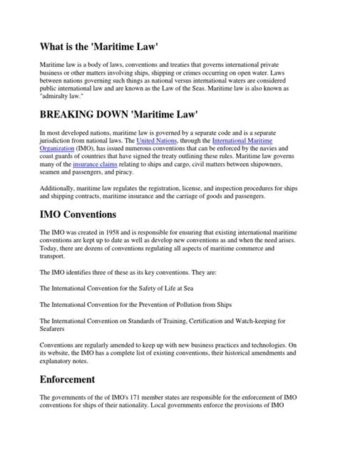
-
FAQ about Byzantine Maritime Law
- What is Byzantine maritime law?
- What does Byzantine maritime law cover?
- How was Byzantine maritime law enforced?
- What are some of the key features of Byzantine maritime law?
- How did Byzantine maritime law influence later maritime law?
- Is Byzantine maritime law still in use today?
- What are some of the most important sources of Byzantine maritime law?
- What is "general average"?
- What is the difference between a "maritime lien" and a "maritime hypothec"?
- What is the "lex Rhodia"?
**Headline:** A Journey Through the Pillars of Byzantine Maritime Law: An Uncharted Voyage into the Blue

**Introduction:**
Welcome, intrepid explorers, to the uncharted waters of Byzantine maritime law. Join us as we embark on a voyage through this ancient legal sea, where we will uncover the fundamental principles that governed the bustling maritime trade routes of the Byzantine Empire. From the intricate details of contracts to the intricate web of maritime courts, we shall delve into the depths of this fascinating legal system. So set sail, dear readers, and prepare to be immersed in the rich tapestry of Byzantine maritime law.
**The Foundation: Historical Origins and Influences**
## The Roman Legacy: A Guiding Star in Maritime Waters
The Byzantine Empire proudly inherited a robust maritime legal framework from its Roman predecessors. The Justinian Code, compiled in the 6th century CE, served as the cornerstone of Byzantine maritime law, meticulously outlining the rights and responsibilities of ship owners, merchants, and sailors. These Roman legal principles provided a solid foundation upon which the Byzantines constructed their own maritime legal edifice.
### Greek Contributions: Sailors of Thought and Law
The rich seafaring traditions of ancient Greece also left an indelible mark on Byzantine maritime law. Greek concepts of seamanship, ship design, and navigation found their way into Byzantine legal texts. The influence of Greek maritime thought can be seen in the Byzantine emphasis on nautical expertise and the development of specialized maritime courts.
**Key Elements: Contracts, Courts, and Punishment**
## Maritime Contracts: A Symphony of Commerce
Byzantine maritime law governed a wide range of commercial transactions that took place on the high seas. Contracts played a vital role in regulating the complex relationships between ship owners, merchants, and sailors. These contracts meticulously detailed the terms of the voyage, including the division of profits, the responsibilities of the crew, and the consequences of breach. Failure to adhere to contractual obligations could lead to severe legal repercussions.
### Maritime Courts: Guardians of Justice on the Waves
Specialized maritime courts, known as “epibolarioi dikai”, were established to handle disputes arising from maritime activities. These courts were presided over by experienced judges who possessed a deep understanding of maritime law and the unique challenges faced by seafarers. The Byzantine legal system provided for a fair and impartial resolution of maritime disputes, ensuring that justice prevailed in this perilous realm.
#### Enforcement: Teeth in the Law
Byzantine maritime law was not merely a set of abstract principles; it possessed the power to enforce its dictates. Penalties for违反 maritime law could be severe, ranging from fines to imprisonment. In cases of serious offenses, such as piracy or smuggling, the death penalty could be imposed. This strict enforcement regime ensured that the rules of the sea were strictly adhered to, maintaining order and stability on the maritime frontiers of the empire.
## Seafarers’ Rights: A Compass for Navigating the Legal Seas
### Sailors’ Protections: A Shield Against Injustice
Byzantine maritime law recognized the unique vulnerabilities faced by seafarers and provided a framework of protections to safeguard their rights. Sailors were entitled to fair wages, decent working conditions, and legal recourse in cases of abuse or exploitation. This legal framework ensured that sailors were treated with dignity and respect, essential for maintaining a skilled and motivated maritime workforce.
#### Ship Owners’ Obligations: A Duty to Care
Ship owners, in turn, had corresponding obligations under Byzantine maritime law. They were responsible for providing seaworthy vessels, maintaining safe working conditions, and ensuring the well-being of their crew. Failure to meet these obligations could lead to legal liability and expose ship owners to financial penalties or even criminal charges.
**Maritime Commerce: Engines of Economic Growth**
## The Flourishing of Trade: Maritime Law as a Catalyst
Byzantine maritime law played a pivotal role in facilitating the bustling trade networks that crisscrossed the Mediterranean Sea and beyond. The clarity and predictability of maritime law provided merchants with the confidence to embark on long and perilous sea voyages. By safeguarding the rights of traders and ship owners, Byzantine maritime law fostered an environment conducive to economic growth and prosperity.
### Shipbuilding and Seafaring Expertise: Masters of the Maritime Domain
The Byzantines excelled in shipbuilding and seafaring, producing some of the most advanced vessels of their time. Their skilled craftsmen crafted sturdy ships that could navigate the treacherous waters of the Mediterranean and beyond. Byzantine sailors possessed unparalleled seafaring knowledge, enabling them to traverse vast distances and establish trade routes that connected far-flung corners of the known world.
**A Legacy of Legal Ingenuity: Byzantine Maritime Law’s Enduring Impact**
## A Beacon of Maritime Law: Guiding Modern Jurisprudence
Byzantine maritime law left an enduring legacy that continues to shape modern maritime jurisprudence. Its principles of contract, liability, and enforcement have been incorporated into the maritime laws of many countries around the world. The Byzantine emphasis on specialized maritime courts and expertise has also influenced the development of modern admiralty courts.
### A Model for International Maritime Cooperation
Byzantine maritime law played a crucial role in fostering cooperation and order among the diverse maritime nations of the Mediterranean. It provided a common framework for resolving disputes, facilitating trade, and ensuring the safety of seafarers. This spirit of cooperation laid the groundwork for the development of international maritime law in subsequent centuries.
**Table: Key Concepts of Byzantine Maritime Law**
| Concept | Definition |
|—|—|
| Rhodian Sea Law | A collection of ancient maritime customs that served as a foundation for Byzantine maritime law |
| Nautikos Nomos | The maritime code of the Byzantine Empire, compiled in the 9th century CE |
| Epibolarioi dikai | Specialized maritime courts |
| Naukleros | Ship owner |
| Nautes | Sailor |
| Embole | Maritime contract |
**Conclusion:**
Our voyage through the uncharted waters of Byzantine maritime law draws to a close, leaving us with a profound appreciation for the ingenuity and complexity of this ancient legal system. From its Roman roots to its Greek influences, from its emphasis on contracts and courts to its protections for seafarers, Byzantine maritime law played a pivotal role in shaping the maritime world of its time. Its principles continue to resonate in modern maritime law, serving as a testament to the enduring legacy of the Byzantine Empire.
So, dear readers, as you set sail on your own legal adventures, may the spirit of Byzantine maritime law guide you through the treacherous waters that lie ahead. And if you find yourself yearning for further maritime knowledge, be sure to explore our vast collection of articles on all things maritime. Bon voyage, intrepid explorers!
FAQ about Byzantine Maritime Law
What is Byzantine maritime law?
Byzantine maritime law was an important body of law governing sea-related disputes during the Byzantine Empire, from the 6th to the 15th centuries.
What does Byzantine maritime law cover?
It covered a wide range of issues, including:
- Ship construction and safety
- Ship ownership and transfer
- Maritime contracts
- Seamen’s rights and obligations
- Collision and salvage
How was Byzantine maritime law enforced?
Byzantine maritime law was enforced by the admiralty courts of the empire. These were special courts established to deal with disputes involving ships and seafaring.
What are some of the key features of Byzantine maritime law?
Key features include:
- The use of written contracts to govern maritime disputes
- The development of a system of maritime insurance
- The establishment of a system of maritime courts
How did Byzantine maritime law influence later maritime law?
Byzantine maritime law was a major influence on the development of maritime law in Europe and the Mediterranean. Its principles and practices were adopted by many later maritime powers.
Is Byzantine maritime law still in use today?
While Byzantine maritime law is no longer directly in use, it has had a lasting influence on the development of modern maritime law. Many of its principles and practices are still reflected in the maritime laws of today.
What are some of the most important sources of Byzantine maritime law?
The most important sources of Byzantine maritime law are:
- The Rhodian Sea Law
- Constantine’s Rhodian Maritime Code
- Leon VI’s Naval Book
What is "general average"?
General average is a term used in maritime law to refer to a situation where a ship or its cargo is sacrificed for the benefit of the entire voyage. In such cases, the losses are shared among all of the parties involved in the voyage.
What is the difference between a "maritime lien" and a "maritime hypothec"?
A maritime lien is a right to have a ship or its cargo sold in order to satisfy a debt owed by the ship’s owner. A maritime hypothec is similar to a mortgage on a ship, but it does not give the holder of the hypothec the right to have the ship sold.
What is the "lex Rhodia"?
The lex Rhodia is a term used to refer to the maritime laws of the ancient Greek city-state of Rhodes. These laws were adopted by the Byzantine Empire and became a major source of Byzantine maritime law.




